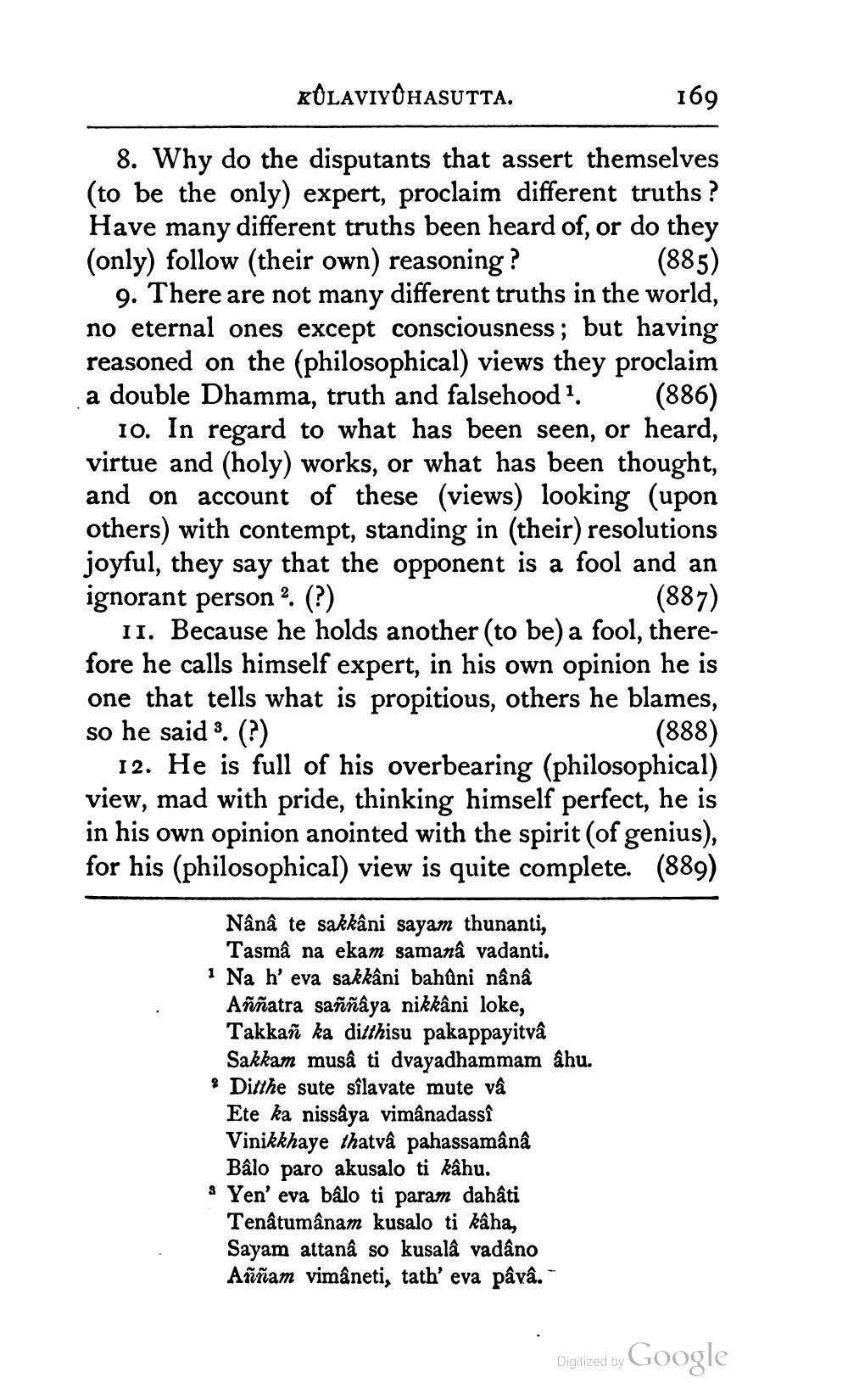________________
KÓLAVIYÛHASUTTA.
169
8. Why do the disputants that assert themselves (to be the only) expert, proclaim different truths ? Have many different truths been heard of, or do they (only) follow (their own) reasoning ?
(885) 9. There are not many different truths in the world, no eternal ones except consciousness; but having reasoned on the (philosophical) views they proclaim a double Dhamma, truth and falsehood 1. (886)
10. In regard to what has been seen, or heard, virtue and (holy) works, or what has been thought, and on account of these (views) looking (upon others) with contempt, standing in (their) resolutions joyful, they say that the opponent is a fool and an ignorant person 2. (?)
(887) 11. Because he holds another (to be) a fool, therefore he calls himself expert, in his own opinion he is one that tells what is propitious, others he blames, so he said 3. (?)
(888) 12. He is full of his overbearing (philosophical) view, mad with pride, thinking himself perfect, he is in his own opinion anointed with the spirit (of genius), for his (philosophical) view is quite complete. (889)
Nânâ te sakkâni sayam thunanti,
Tasmâ na ekam samanâ vadanti. 1 Na h'eva sakkâni bahûni nânâ Aññatra saññâya nikkâni loke, Takkan ka ditthisu pakappayitva Sakkam musâ ti dvayadhammam âhu. ? Ditthe sute sîlavate mute vâ
Ete ka nissâya vimânadassi Vinikkhaye thatva pahassamânâ
Bâlo paro akusalo ti kâhu. : Yen' eva bâlo ti param dahâti
Tenâtumânam kusalo ti kâha, Sayam attanâ so kusalâ vadâno Aññam vimâneti, tath' eva pâvâ. **
Digitized by Google




